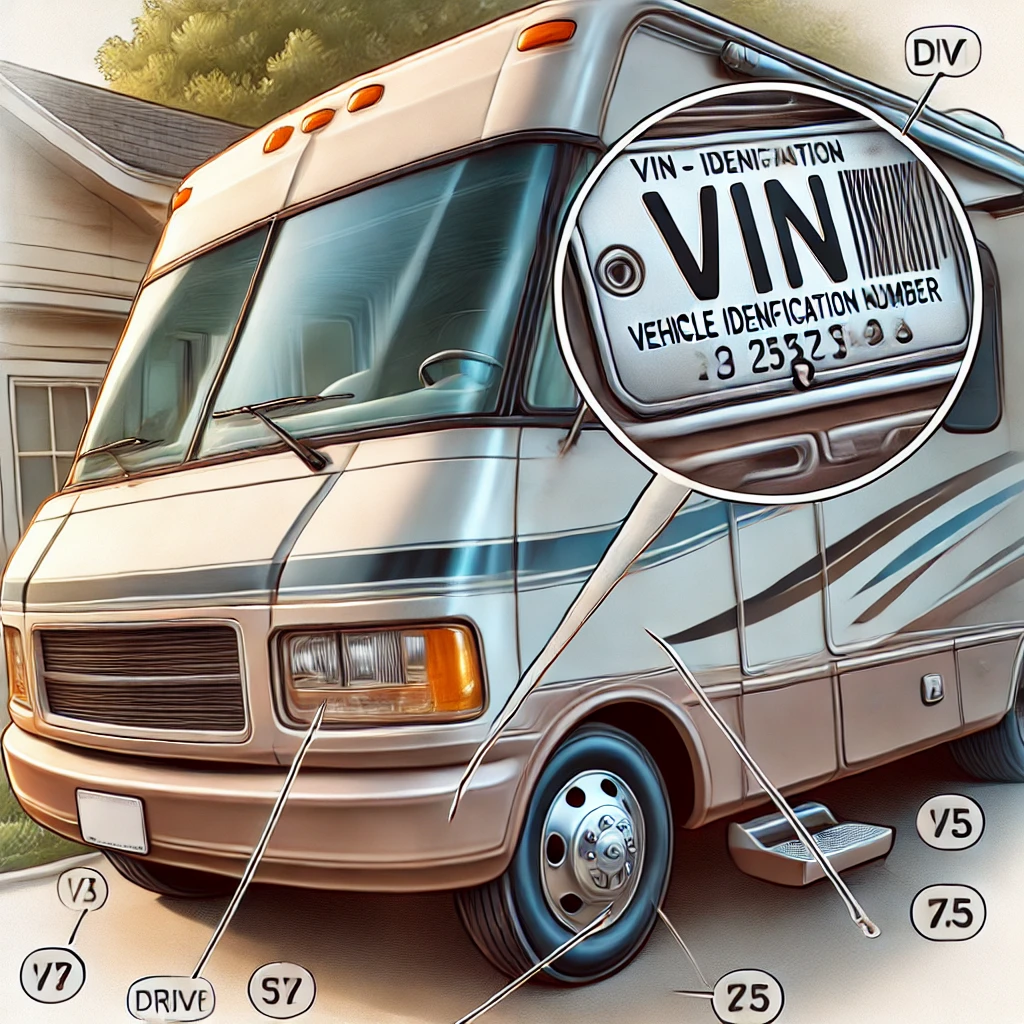If you own an RV or are considering purchasing one, you’ve likely heard the term “VIN” mentioned frequently. But what exactly is an RV VIN, and why is it so important? Understanding the significance of this unique code can help you make informed decisions about buying, selling, and maintaining your recreational vehicle. Let’s dive into the details and explore why every RV owner should care about their vehicle’s VIN.
What is a VIN? VIN stands for Vehicle Identification Number. It is a unique 17-digit code assigned to every vehicle manufactured, including RVs, motorhomes, and travel trailers. Think of it as your RV’s fingerprint – no two vehicles have the same VIN. The code contains essential information about your RV, such as the manufacturer, model year, production line, and serial number. Typically, you can find the VIN stamped on a metal plate mounted on the front left corner of the dashboard, visible through the windshield. It may also be located on a sticker inside the driver’s side doorjamb or in your RV’s documentation.
Why is the VIN important for ownership records? The VIN is the primary identifier for your RV in all ownership records. When you purchase an RV, the VIN is used to transfer the title into your name. If you sell the vehicle, the new owner will use the VIN to register it in their name. The VIN also tracks any liens or loans tied to the RV. Lenders and insurance companies use the VIN to record their financial interest in the vehicle. If you need to prove ownership or resolve title disputes, the VIN is the key piece of information that will be used to verify your claim.
How does the VIN help with maintenance and repairs? Your RV’s VIN is essential for proper maintenance and repairs. When you take your vehicle to a service center or order replacement parts, the technicians will often ask for the VIN. This code allows them to look up the exact specifications and components for your particular RV model, ensuring they use the correct parts and fluids. The VIN also enables them to check for any outstanding recalls or service bulletins related to your vehicle, helping you stay on top of necessary repairs and avoid potential safety hazards.
What role does the VIN play in RV insurance? Insurance companies heavily rely on VINs to accurately assess risk and set premiums for RV policies. When you provide your VIN to an insurer, they can access a detailed history of the vehicle, including any accidents, damage, or repairs. This information helps them determine the value of your RV and the likelihood of future claims. Some insurers may even refuse to provide coverage without a valid VIN. If you need to file a claim, your RV’s VIN will be a crucial identifier in the process, helping to expedite repairs and reimbursements.
How can the VIN help you avoid buying a lemon? When shopping for a used RV, running a VIN check is one of the smartest steps you can take to avoid buying a lemon. A VIN check or vehicle history report pulls records from various databases to uncover important details about the RV’s past. This may include information about accidents, flood or fire damage, ownership history, liens, and even maintenance records. By reviewing the VIN report before making a purchase, you can identify potential red flags and make a more informed decision about the RV’s condition and value. If the report reveals significant damage or a history of frequent repairs, you may want to think twice before proceeding with the purchase.
In conclusion, the VIN is a vital piece of information for every RV owner. This unique code serves as a key identifier for ownership records, maintenance, insurance, and more. By understanding the significance of your RV’s VIN and using it to your advantage, you can better protect your investment, avoid potential pitfalls, and enjoy a safer, more reliable recreational vehicle experience. So, the next time you see that 17-digit code stamped on your RV, remember just how much power and importance it holds.
